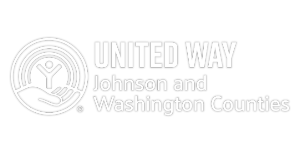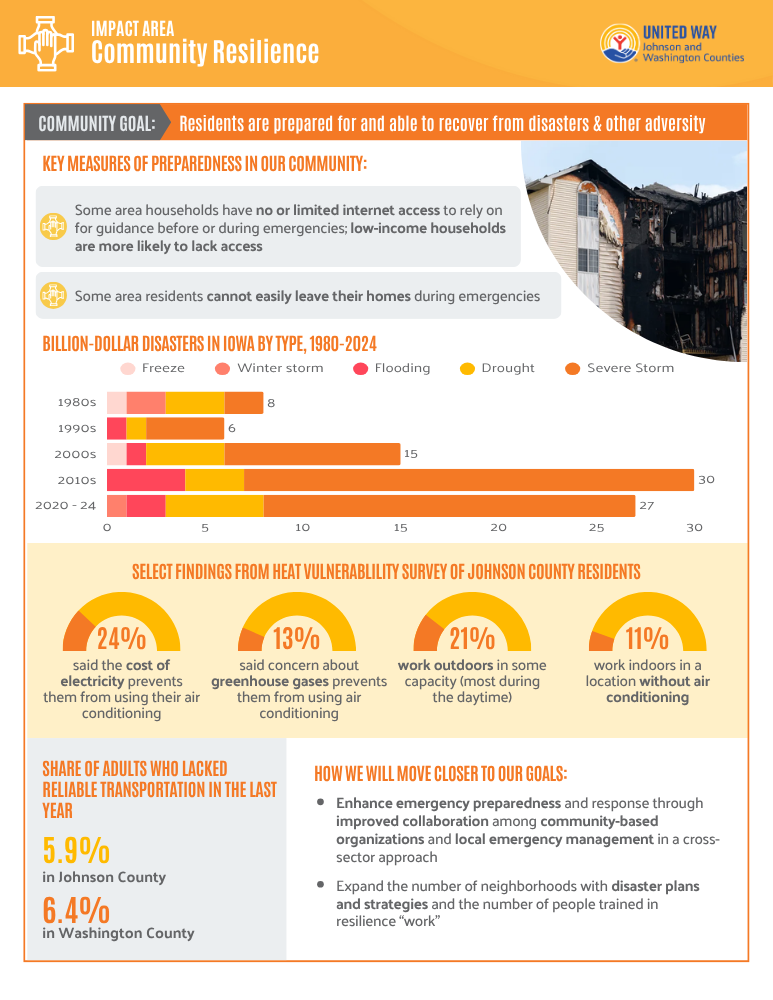
Community Resilience
Emergency Preparedness • Transportation • Language Barriers
Addressing urgent needs today and advancing a better tomorrow.
WHY IT MATTERS: Every community should have the chance to thrive. By supporting crisis response efforts like 211 (offering 24/7 access to resources and coordinated services), mobilizing volunteers, strengthening nonprofits, and responding to disasters, we’re helping to build a stronger foundation in Johnson and Washington counties—creating more resilient communities prepared to face any challenge.
Key measures of preparedness in our community:
- Some area households have no or limited internet access to rely on for guidance before or during emergencies; low-income households are more likely to lack access
- Some area residents cannot easily leave their homes during emergencies
Billion-dollar disasters in Iowa by type, 1980-2024

Share of adults who lacked reliable transportation in the last year
5.9%
in Johnson County
6.4%
in Washington County
How we will move closer to our goalS:
- Enhance emergency preparedness and response through improved collaboration among community-based organizations and local emergency management in a cross-sector approach
- Expand the number of neighborhoods with disaster plans and strategies and the number of people trained in resilience “work”
Select findings from Heat Vulnerability survey of Johnson County residents
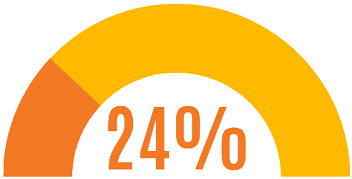
said the cost of electricity prevents them from using their air conditioning
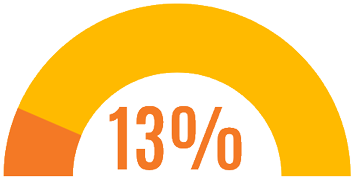
said concern about greenhouse gases prevents them from using air conditioning
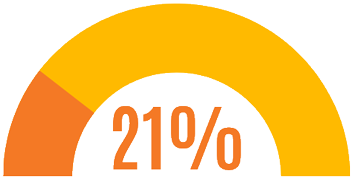
work outdoors in some capacity (most during the daytime)

work indoors in a location without air conditioning
Key measures of resilience in our community:
- Johnson County lags state & nation in presence of social associations; Washington measures above
- New arrivals to our community may need extra language support to build community connections and knowledge
Membership organizations
per 10,000 people
Johnson County
Washington County
Iowa
2,509
students were receiving English Language Learners services
How We will move closer to our goals:
- Increase number of neighborhood hubs and increase the share of people who engage with their neighborhood groups to foster stronger community connections
- Increase community awareness of resources, making certain those resources are culturally & linguistically accessible and recognizable within the different communities being served
Percent of adults reporting they feel socially isolated or lack social/ emotion support
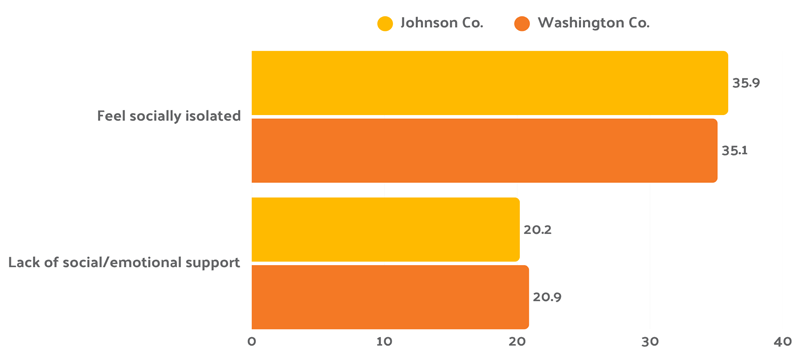
Share of households speaking a language other than English & share that are limited English-speaking, Johnson AND Washington Counties
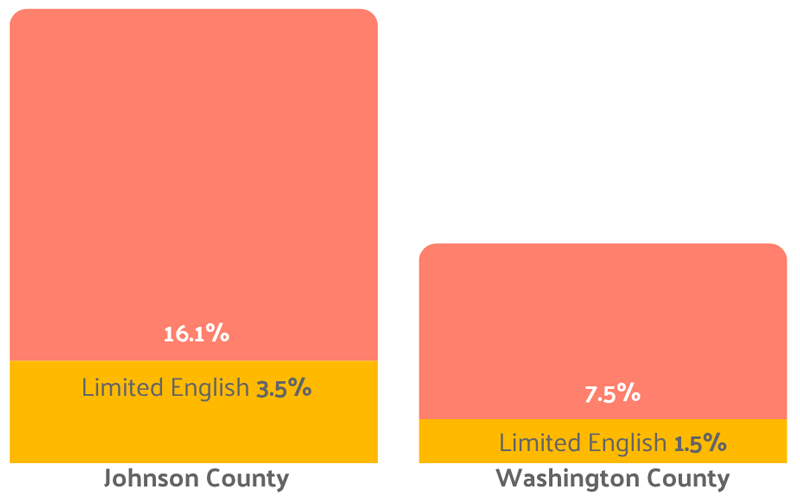
UNITED WAY’S ROLE IN COMMUNITY RESILIENCE
Fund & Collaborate
Strong, resourced communities are better able to build back from adversity. United Way strengthens Community Resilience by bringing people and organizations together to address challenges and create lasting solutions. Through our extensive network of nonprofits, businesses and community leaders, we help our community understand problems, co-create solutions and ensure accountability for results. We lead the Community Organizations Active in Disaster (COAD), ensuring a coordinated response to local crises, and operate 211, a vital helpline that connects individuals to essential resources like housing, food, and crisis support. By leveraging partnerships and resources, we build a stronger, more resilient community that can adapt and thrive in the face of challenges.

Advocate & Educate
We recognize that climate change disproportionately impacts vulnerable populations, threatening housing stability, financial security and overall well-being. A resilient community is one that can adapt, withstand and recover from climate-related challenges while ensuring all individuals have access to essential resources.
We advocate for climate-resilient housing, sustainable infrastructure, and neighborhood-based emergency preparedness to protect communities from extreme weather and environmental disruptions.
